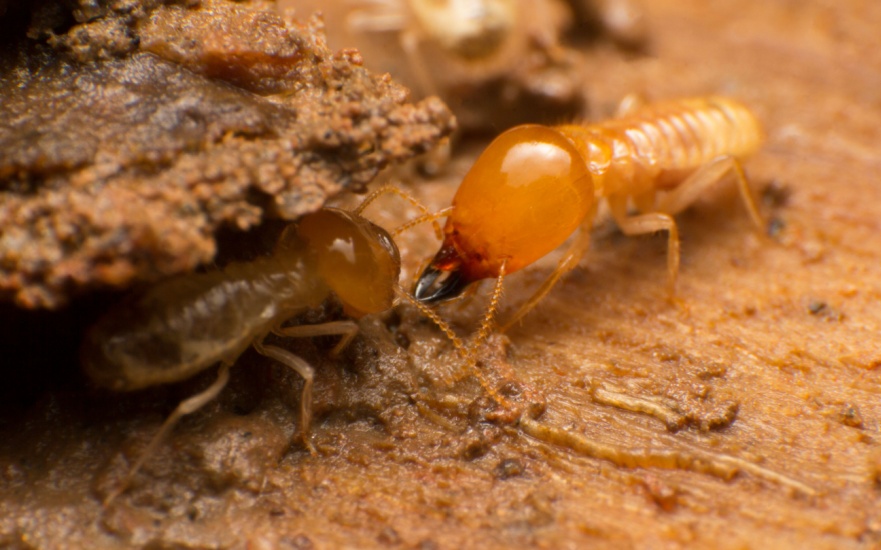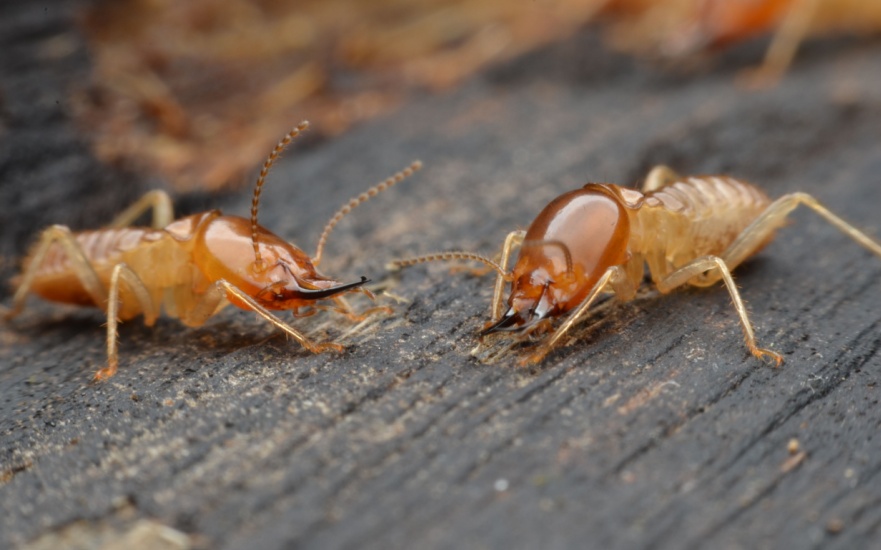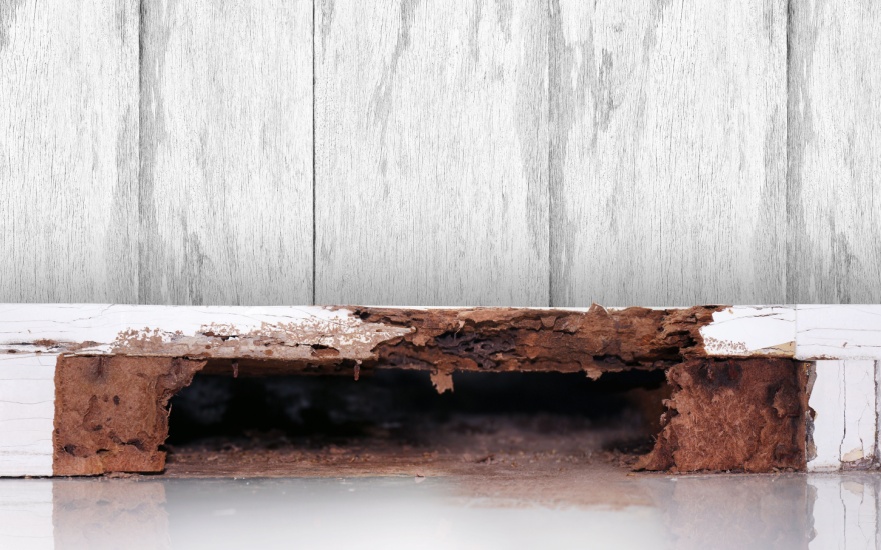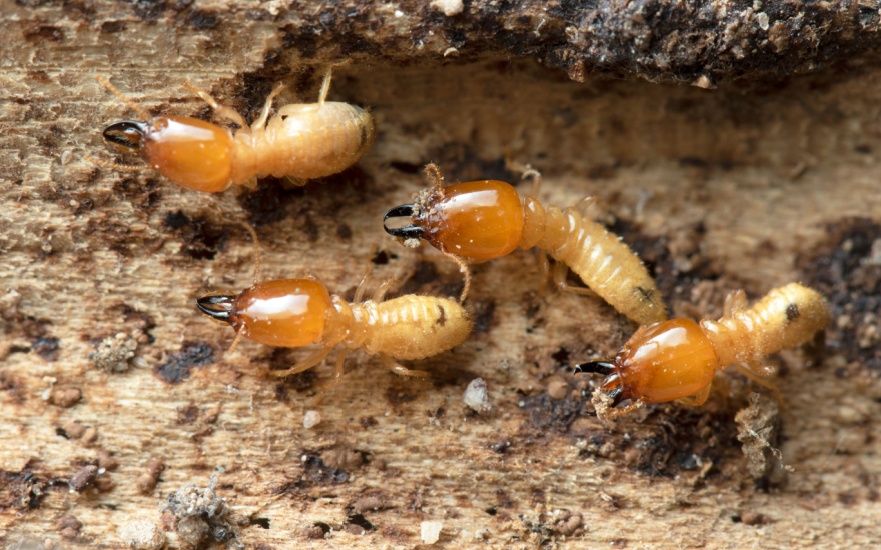Charleston, SC, is perfect for termites because of its warm and humid weather. The area’s moisture and rain draw these pests. This makes termite problems big for homeowners.
Vinx Pest Control knows how bad termites can be. Many old homes in our area are at risk because of their wood. To find out more about termites in Charleston and how to keep your home safe, visit our page: Are Termites a Common Problem in Charleston, SC
Key Takeaways
- Charleston’s climate is conducive to termite activity.
- High humidity and rainfall contribute to termite infestations.
- Older homes are more susceptible to termite damage.
- Vinx Pest Control offers effective termite management solutions.
- Protecting your property from termites requires proactive measures.
The Termite Threat in Charleston, SC
Charleston, SC, faces a big problem with termites. The city’s climate and location make it a perfect place for these pests.
Why Charleston Is a Termite Hotspot
Charleston’s warm weather is great for termites. The city’s closeness to the ocean and many waterways means it’s very humid. This humidity helps termites live well.
Also, Charleston’s old buildings and wooden homes are full of food for termites. This makes the city a big problem area for them.
Local Climate Factors That Attract Termites
Charleston’s weather draws termites in. The mild winters and hot, wet summers keep them busy all year. The city’s rain and moist soil are also perfect for termites.
Knowing these weather facts helps homeowners protect their homes from termites. It’s important to take steps to stop termites before they start a problem.
Common Termite Species in Charleston
Knowing about the termites in Charleston is key for keeping pests away. Charleston has subterranean, Formosan, and drywood termites. Each type can damage buildings in different ways.
Subterranean Termites
Subterranean termites are very common in Charleston. They live underground and can harm buildings a lot. They need moisture, so they like damp places.
For tips on stopping subterranean termites, check out our termite control experts page.
Formosan Termites
Formosan termites are very aggressive and can damage a lot. They build big colonies and can harm many materials. They are a big problem in Charleston because of the weather and water nearby.
Drywood Termites
Drywood termites don’t need water to live and can harm dry wood. They are often found in attics or dry places. Even though they are less common, they can cause a lot of damage if not stopped.
Understanding Termites and Their Behavior
Termites are social insects that live in complex colonies. Knowing how they behave is key to managing pests. Their colonies have different roles for each caste.
Termite Colony Structure
A termite colony has a clear hierarchy. Workers do foraging, care for young, and keep the colony running. Soldiers defend with their big heads and strong mandibles.
Feeding Patterns and Wood Preferences
Termites eat wood and other cellulose materials. What they eat depends on the wood type and moisture. Some like damp wood, while others attack dry wood.
Reproduction and Spread
Reproductives, or swarmers, help the colony grow. They leave, mate, and start new colonies. Knowing their reproductive cycle helps stop new infestations.
Signs of Termite Infestation in Charleston Homes
Homeowners in Charleston, SC, need to know the signs of termites. Termites can damage homes a lot. It’s important to spot them early to avoid expensive fixes.
Visual Indicators of Termite Activity
Look for mud tubes on walls and floors. Also, check for discarded wings near windows and doors. And, if wood sounds hollow when tapped, it might be damaged by termites.
- Mud tubes on walls and floors
- Discarded wings near windows and doors
- Damaged wood that sounds hollow when tapped
Seasonal Swarms and What They Mean
Termites swarm in the spring. This means a big termite colony is nearby. If you see termites around lights, call a pest control right away.
The Destructive Impact of Termites on Charleston Properties
Termites are a big problem in Charleston. They can cause a lot of damage to homes. This damage can also cost a lot of money.
Structural Damage Assessment
Termites eat wood, which makes buildings weak. They can damage beams, floors, and walls. This can make floors sag, walls crack, and doors and windows hard to open.
These problems show that termites are causing harm. This could mean expensive fixes are needed.
Financial Costs of Termite Damage
Termites can also cost a lot of money. Homeowners might have to pay thousands for repairs. They might also see their home’s value go down.
Insurance costs can go up too. This is because of termite damage. It’s important to deal with termites quickly to avoid these costs.
High-Risk Areas in Charleston for Termite Activity
Charleston’s different landscapes and weather make some areas more prone to termites. Knowing these spots helps homeowners protect their homes.
Historic District Vulnerabilities
The Historic District in Charleston is at high risk for termites. This is because of the old buildings and the materials they’re made of. Older homes, with their wood and sometimes weak foundations, are perfect for termites. It’s important to check these homes often and keep them in good shape.
- Older homes with wooden structures
- Compromised foundations
- Close proximity of buildings
Coastal Property Concerns
Coastal homes in Charleston also face a big risk from termites. The damp air and wood near the water are perfect for termites. Homeowners in these areas must watch for termite signs and act fast to protect their homes.
- Moist environment
- Presence of wooden structures near water
- Higher salt content in the air
Termite Prevention Strategies for Charleston Homeowners
Charleston’s climate is perfect for termites. But, you can keep your home safe with the right steps. Knowing the risks and acting early can save your home from damage.
Moisture Control Techniques
Keeping moisture away is key to stopping termites. Make sure your home drains well and fix leaks fast. Check your home’s foundation, walls, and roof for moisture.
- Fix leaks and water damage promptly
- Ensure proper drainage around your home
- Use a dehumidifier in humid areas
Landscaping Considerations
Landscaping can help prevent termites. Keep trees and shrubs away from your home. Don’t store firewood or other cellulose near your home, as termites like it.
- Keep trees and shrubs trimmed back
- Avoid storing firewood near your home
- Use termite-resistant mulch
Building Materials and Design Factors
Choose materials that resist termites and design your home wisely. Use materials like composite or naturally resistant woods. Make sure your home has good airflow and doesn’t hold moisture.
- Use termite-resistant building materials
- Design your home for good airflow
- Regularly inspect your home’s foundation and walls
Professional Termite Inspection Services
At Vinx Pest Control, we offer top-notch termite inspection services. This gives homeowners peace of mind and keeps them safe from expensive termite damage. In Charleston, termite damage is common. Our team has the skills and tools for detailed inspections.
Comprehensive Inspection Process
Our termite inspection checks your home inside and out. We look for signs like mud tubes, discarded wings, and damaged wood. We check every spot where termites might be, from the foundation to the roof. Then, we give you a detailed report.
This helps find termite problems early. It means we can treat them fast and prevent more damage.
Advanced Detection Technologies
We use the latest tech at Vinx Pest Control for termite checks. This includes thermal cameras and moisture meters. These tools spot termite activity that’s hard to see. They help us give accurate diagnoses and effective treatments.
Our goal is to keep Charleston homes safe from termites. We use the newest tech to do it.
Effective Termite Treatment Options
Termite infestations need quick action to stop damage. There are many ways to treat termites. Each method has its own good points and things to watch out for.
The right treatment depends on the infestation’s size and type. It also depends on your property. Knowing your options helps you choose the best way to fight termites.
Liquid Termiticide Barriers
Liquid termiticide barriers use chemicals to keep termites out. They are put around your property’s edge. This method works well for subterranean termites and keeps them away for a long time.
- Creates a barrier around the property
- Effective against subterranean termites
- Can be applied during construction or post-construction
Bait Station Systems
Bait station systems are another good choice. They use bait stations around your property. These stations have a slow poison that termites take back to their home. This kills the queen and other termites.
- Targets the termite colony directly
- Can be more environmentally friendly
- Requires monitoring and maintenance
Wood Treatment Methods
Wood treatment methods use chemicals on wood to stop termites. This can be done in different ways, like injecting or applying on the surface.
Some important things about wood treatment are:
- Identifying and treating infested wood
- Using the right chemicals for the wood and termites
- Applying safely to avoid risks
By learning about these treatments, Charleston homeowners can fight termites better. This helps protect their homes.
Why Charleston Homeowners Trust Vinx Pest Control for Termite Management
Charleston homeowners trust Vinx Pest Control for termite management. We have the skills to handle termite problems in Charleston. This has made us known for being reliable and effective.
Our Specialized Approach to Charleston Properties
We know each property in Charleston is different. Our team at Vinx Pest Control uses a specialized approach. We consider the local climate, soil, and property type for effective termite control.
Our detailed inspections and advanced tech help us find termites early. This stops expensive damage to your property.
Long-Term Protection Plans
At Vinx Pest Control, we don’t just treat termites. We also offer long-term protection plans. These plans keep your property termite-free. They give you peace of mind and protect your investment.
Choosing Vinx Pest Control means you’re not just getting pest control. You’re joining a team that protects your home and family from termites.
Conclusion: Protecting Your Charleston Home from Termites
Keeping your Charleston home safe from termites needs a plan and help from experts. Charleston’s weather and land make it a hot spot for termites. This puts homes at big risk.
To fight termites, know the local types, spot infestations early, and use prevention. Vinx Pest Control offers top termite solutions for Charleston homes.
Choosing us means your home is safe from termites. We help keep your Charleston home strong and safe. Our team knows how to check, treat, and prevent termites.
Don’t let termites damage your home. Call Vinx Pest Control now for a termite check. Start protecting your Charleston home today.
FAQ
Q: What are the most common termite species found in Charleston, SC?
A: In Charleston, SC, we often see subterranean, Formosan, and drywood termites. Each type has its own habits and homes. Knowing these differences helps us fight termites better.
Q: How can I identify signs of termite infestation in my Charleston home?
A: Look for mud tubes, wings, and damaged wood. Swarms in spring or fall also mean termites are around. If you see these signs, call Vinx Pest Control right away.
Q: What are the risks associated with termite infestations in Charleston?
A: Termites can damage your home’s structure, leading to expensive fixes. They can also make your home unsafe. It’s important to deal with termites quickly.
Q: How can I prevent termite infestations in my Charleston home?
A: Use moisture control, smart landscaping, and termite-resistant materials. Regular checks by experts can catch problems early.
Q: What are the most effective termite treatment options available?
A: Liquid barriers, bait stations, and wood treatments work well. The best method depends on your home’s needs and the infestation.
Q: Why should I choose Vinx Pest Control for termite management?
A: Vinx Pest Control specializes in Charleston’s termite needs. Our long-term plans and effective control make us a reliable choice.
Q: How can I identify high-risk areas in Charleston for termite activity?
A: Historic and coastal areas are at high risk. These spots need extra care and termite management to avoid damage.
Q: What is the importance of professional termite inspection services?
A: Experts like Vinx Pest Control use advanced tech for thorough checks. This catches termites early, preventing big damage.
Q: Can termite damage be repaired?
A: Yes, but fixing termite damage can be costly and complex. It’s best to tackle termites quickly to avoid big problems.
Q: How can I protect my Charleston home from termites?
A: Use a mix of prevention, regular checks, and treatments. With Vinx Pest Control, your home stays safe from termites.











